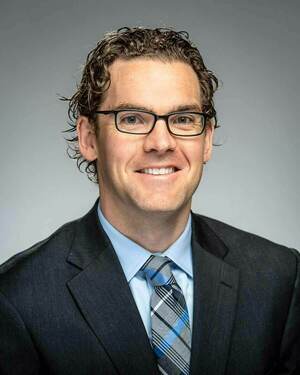POSTPONED (ND Energy Faculty Seminar)
Mark your calendar and please join us for the ND Energy Faculty Luncheon Fall 2023 Seminar Series from 12:30-1:30 p.m. in B01 McCourtney Hall. This series highlights specific research topics with talks by Notre Dame faculty followed by group discussions focused on (1) cross-disciplinary basic research needs, (2) potential avenues for external and internal collaborations, (3) funding sources to target, and (4) 'follow-up actions' that we can track. All interested faculty are invited to attend. With your active engagement and participation, we hope to have a stimulating and inspiring exchange of ideas and explore new directions for cross-collaborations. Please respond to the calendar invitation by 9:00 a.m. the Monday before each seminar to ensure a sufficient number of lunches. If you have any questions, please contact Dr. Subhash L. Shinde.
- Wed., Aug. 30, "Semiconductor Architectures: Nano-Scale Solutions for Macro-Scale Carbon Challenges" by Prashat Kamat
- Fri., Sept. 22, "Planning the Mid-Transition: Aligning Fossil Phase-out and Zero Carbon Phase-in for Just Decarbonization" by Emily Grubert
- Wed., Oct. 25, "Quantum Heavy Fermion Simulator in Moiré Materials” by Petr Stepanov
- Wed., Nov. 15, "High-Throughput Combinatorial Printing for Materials Discovery and Advanced Energy and Electronic Systems" by Yanliang Zhang
- (POSTPONED) “Using High-resolution Numerical Tools for Understanding Geophysical Processes Relevant to Energy Generation” by David Richter
Please join us next semester for the talk by Prof. David Richter titled, “Using High-resolution Numerical Tools for Understanding Geophysical Processes Relevant to Energy Generation”

Abstract
Among the many factors determining the feasibility and efficiency of offshore energy production, these are fundamental problems associated with extracting kinetic energy from the atmospheric or oceanic flows. As such, the details of these flows are important for design considerations ranging from fatigue of a single component to the layout of an entire farm. This presentation will provide an overview of the types of geophysical flows that can be exploited for renewable energy production, as well as the numerical techniques my group employs to better characterize them. In particular, turbulence in the marine atmospheric boundary layer will be discussed, including its potential impacts on offshore wind energy production, how it depends on surface waves, and what it looks like under extreme (i.e., hurricane) conditions.
Biography
David Richter is an associate professor in the Department of Civil and Environmental Engineering and Earth Sciences at Notre Dame, and has been here since fall 2013. He has a B.S. in mechanical engineering from the University of Massachusetts, and a M.S. and Ph.D. from Stanford University (also in mechanical engineering). His Ph.D. research focused on non-Newtonian flows, but he was awarded the National Center for Atmospheric Research Advanced Study Program Postdoctoral Fellowship, where he shifted his focus to atmospheric flows. Since then, he has used high-resolution numerical techniques to study a variety of complex geophysical problems.